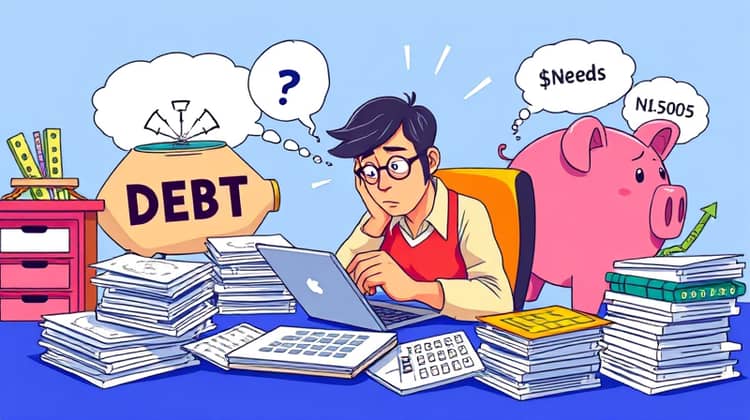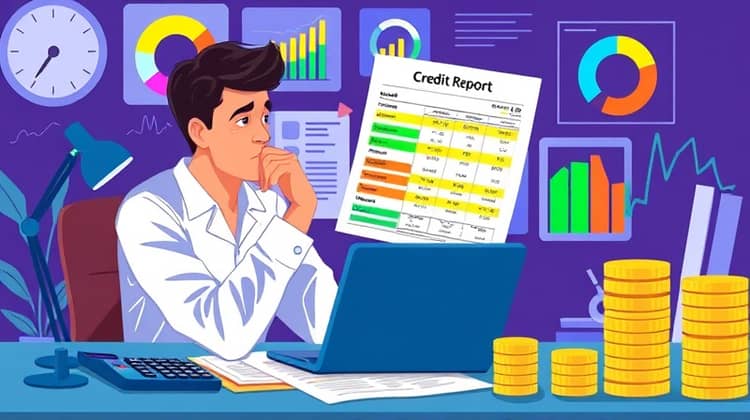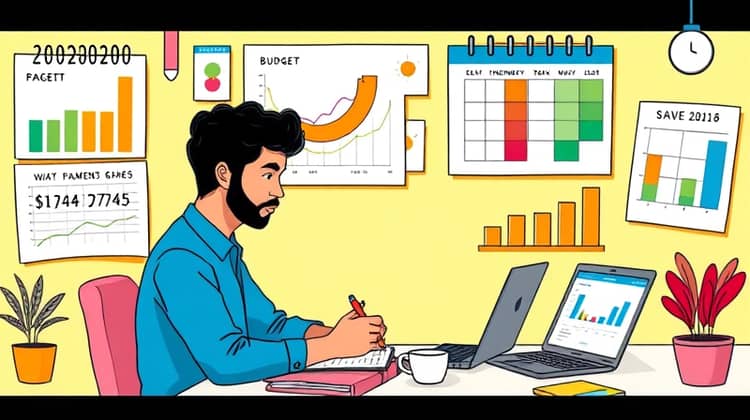Taking a personal loan can be a significant financial decision, and with it comes great responsibility. It's essential to approach the process with a clear understanding of your needs and challenges. Unfortunately, many individuals fall into traps that lead to unnecessary hardship owing to a lack of knowledge or insight. To help you navigate potential pitfalls, we’ve compiled a list of seven common mistakes to avoid when taking out a personal loan.
Whether you're looking to consolidate debt, finance a big purchase, or cover unexpected expenses, avoiding these mistakes can save you time, money, and additional stress. Let's delve into each pitfall and outline how to steer clear of them.
1. Not Shopping Around for the Best Rates

One of the most critical mistakes borrowers make is not exploring various lenders and their offered interest rates. Many individuals assume that the first offer they encounter is the best they can obtain. However, interest rates can vary dramatically between different lenders, and even a small percentage difference can add up to significant savings over the life of the loan.
Moreover, financing options are not limited to traditional banks. Credit unions, online lenders, and peer-to-peer lending platforms might offer lower rates or more flexible terms. That's why comparing multiple options not only broadens your choices but could potentially lower your repayment burden.
- Consider both traditional and online lenders.
- Review credit unions for competitive rates.
- Use loan comparison tools for easy assessments.
2. Ignoring the Fine Print

When taking out a personal loan, it’s vital to read the fine print carefully. Many borrowers may skip this step, only looking at the essential details like monthly payments and interest rates. However, the terms and conditions contain critical information that could impact the loan's total cost and your repayment experience.
This fine print can include late payment fees, prepayment penalties, and other potential charges that may apply during the loan period. A thorough understanding of these conditions will help you avoid any unpleasant surprises later on.
Neglecting fine print can indeed turn a sound financial decision into a burden, so take your time during this step.
- Look for fees associated with the loan.
- Understand prepayment and late payment penalties.
- Be aware of how interest is calculated over time.
3. Borrowing More than You Need

One common mistake is taking out a larger loan than necessary, often leading to unmanageable debt levels. Borrowing more than needed increases the size of the monthly payments and the total interest paid over time, both of which can strain your finances. Maintaining a precise understanding of your requirements before applying for a loan is crucial to avoid this pitfall.
Consider making a budget that outlines your financial needs and expenses. This practice will provide you with clarity on how much you truly need to borrow, allowing you to keep your loan amount reasonable and manageable. Minimizing your loan amount leads to less interest paid and easier repayment.
4. Choosing Longer Terms to Lower Monthly Payments

While opting for a longer repayment term can reduce monthly payments, it often results in higher overall interest expenses over the life of the loan. Many borrowers think they are making a wise choice by extending the term, but they may end up paying significantly more in interest than necessary. A shorter repayment term typically carries lower interest rates and can save you money in the long run.
It is essential to find a balance between manageable monthly payments and the total cost of the loan. Depending on your financial situation, investigate different term options, and consider how each affects both your budget and the total interest you'll owe.
- Evaluate different terms to understand total costs.
- Find a balance between monthly affordability and interest paid.
- Prioritize minimizing interest over just lowering monthly payments.
5. Not Considering the Impact on Your Credit Score

Many people overlook the effect that a personal loan can have on their credit score. While responsible borrowing can improve credit history, late payments or overextending credit can lead to a decrease in your score. Therefore, understanding how taking out a loan will impact your credit profile is vital before making any decisions.
When applying for a loan, the lender will perform a hard inquiry on your credit report, which can temporarily lower your score. It's advisable to manage new credit inquiries wisely and be aware of how loan repayments will fit into your overall financial landscape.
- Understand how loan inquiries affect your credit score.
- Ensure timely payments to maintain or improve your credit score.
- Limit the number of loans taken out within a short timeframe.
Being informed about the potential impacts on your score allows you to make smarter, more responsible financial choices.
6. Not Having a Repayment Plan

Failing to establish a clear repayment plan can lead to missed payments and mounting debt. Before you finalize the loan, take the time to lay out how you will make your payments each month. Are there expected changes in your income? What happens if unexpected expenses arise? Planning for such uncertainties is crucial.
Setting up a budget or a savings plan can assist in ensuring loan payments are manageable and made on time. Consider using tools and apps designed to help track and remind you of upcoming payments.
- Create a monthly budget including repayment amounts.
- Consider using automatic payments or reminders.
- Evaluate your payment capabilities against current and future expenses.
Having a proactive approach to repayment can prevent financial strain and enhance your creditworthiness.
7. Using the Loan for Non-Essential Expenses

Taking out a personal loan for non-essential purchases such as vacations, luxury items, or unnecessary upgrades can lead to an unsustainable debt cycle. While loans can offer great flexibility, it is crucial to prioritize their use for essential expenditures or investments that will positively impact your financial standing.
Before applying for a personal loan, thoroughly assess whether the purchase aligns with your long-term financial goals or if it is merely an impulse decision. Making informed financial decisions is key to avoiding excessive debt.
- Prioritize loans for necessary and useful expenses.
- Evaluate the long-term benefits of the purchase.
- Avoid impulsive buying when using borrowed money.
Staying disciplined about the purpose of your loan will help you avoid overextending your finances and ensure a more positive outcome in managing debt.
Conclusion

Avoiding mistakes when taking a personal loan is crucial in ensuring a healthy financial future. By understanding your options, reading all terms carefully, and planning wisely, you can take full advantage of a personal loan without falling into common traps.
Whether you're faced with unexpected expenses or planning for a significant purchase, arming yourself with knowledge and a clear strategy will lead to better decision-making. This proactive approach helps ensure that the financial assistance you seek truly serves your best interests.














